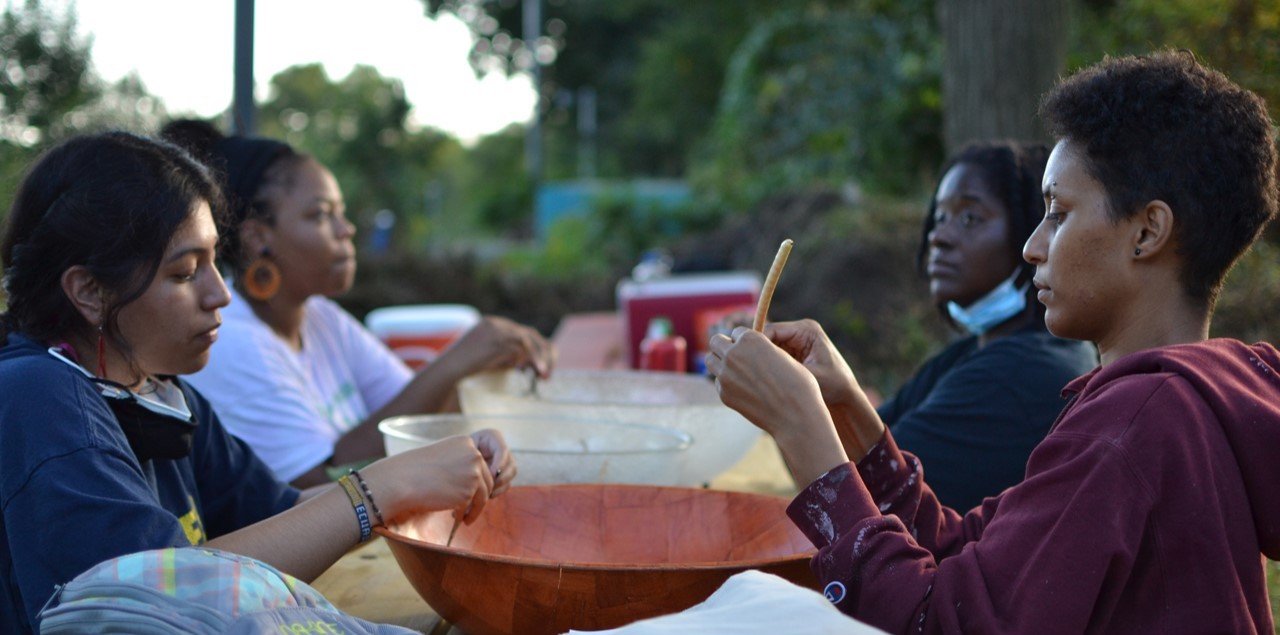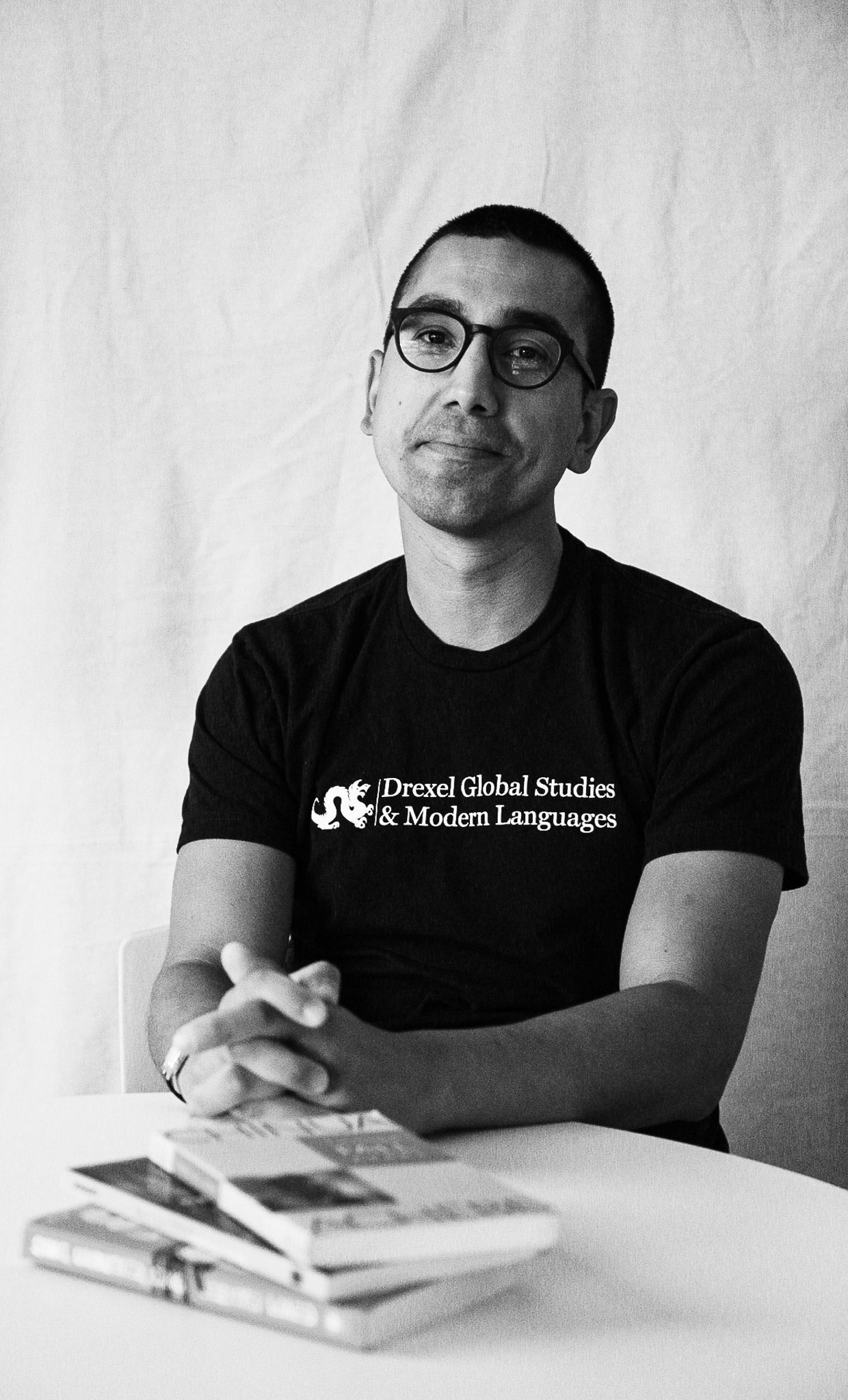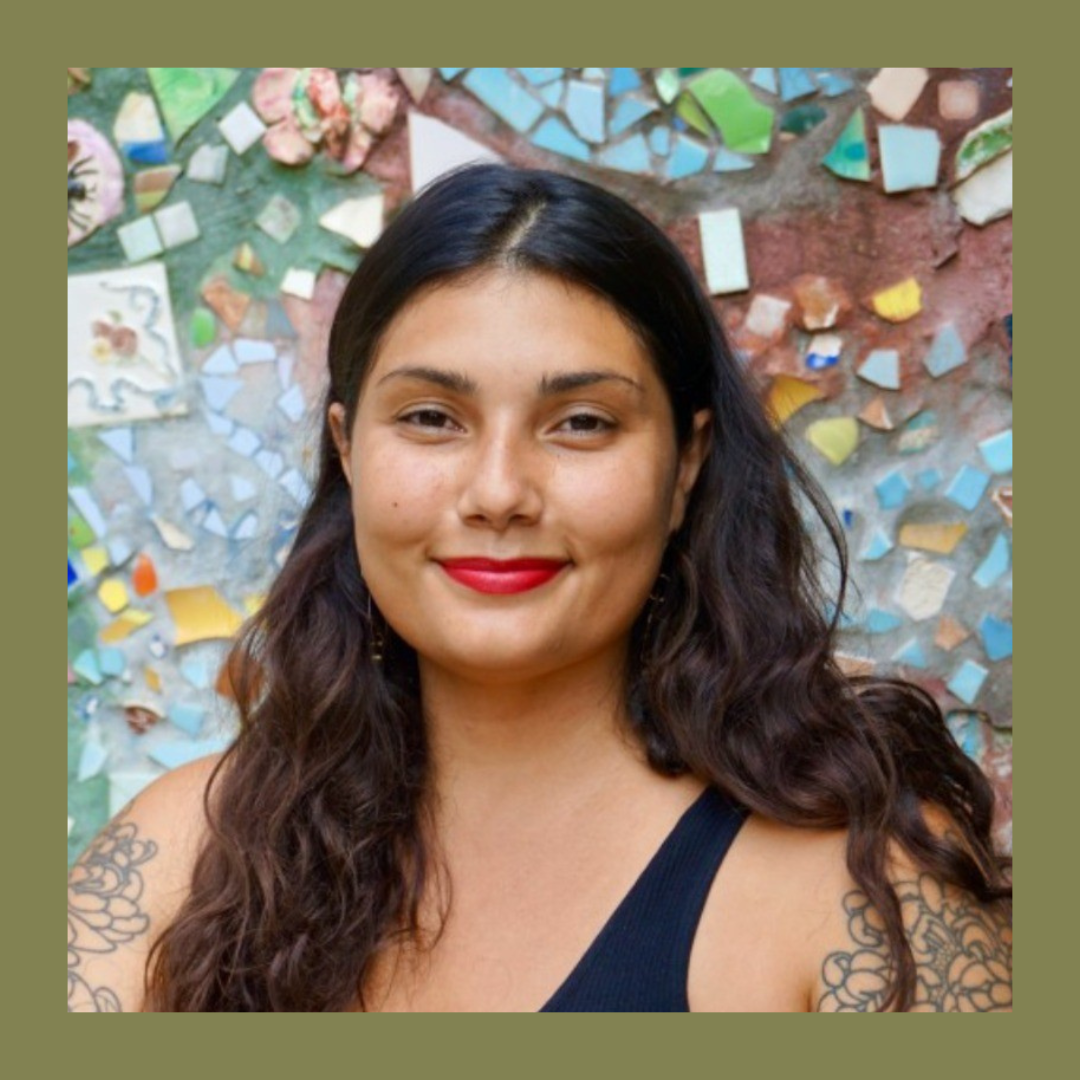STEVE
VÁSQUEZ
DOLPH
INSTRUCTOR Project Lead
Steve Vásquez Dolph, PhD is an Associate Teaching Professor of Spanish in the Department of Global Studies & Modern Languages at Drexel University. His teaching and research are situated at the intersection of migration and climate change in the Americas. Working from his identity as a child of the diaspora and a first-generation American, Steve's teaching practice is rooted in longstanding partnerships with community-based organizations in Philadelphia and Puerto Rico.
FOOD AND LAND SECURITY IN PHILADELPHIA
"Food and Land Security in Philadelphia" is a land-based course co-instructed with Cesali Morales, an artist and communications strategist committed to furthering communities' self-determination, Lex Wiley, a community farm educator and scholar of racial geographies, and César Viveros Herrera, a public artist whose work is steeped in documentary practice.
The design of the course, held at Sankofa Community Farm, Iglesias Gardens, and Norris Square Neighborhood Project, emerged from months of discussion and collaboration: students learn directly from expert practitioners about community agriculture projects designed to preserve and promote traditional practices around horticulture, cuisine, and storytelling. The partners represent three distinct but intersecting cultural traditions integral to the composition of our minority communities: West Africa (Sankofa), Mesoamerica (Iglesias), and the Caribbean (NSNP). At each partner site, students participate in land-based story work before sharing a culturally-relevant meal. All of this experiential learning is interwoven with critical reflection exercises and bookended by readings and discussions.
STEVE DOLPH BY DEJAH MCINTOSH

SITTING DOWN WITH STEVE
Jayla Washington gets to the root of the Food and Land Security in Philadelphia course with Steve Vásquez Dolph.
Words by Jayla Washington
Shelling purple hull peas and Sankofa Farm, Fall 2021
How has your involvement in the UnMapping aided in the evolution of this course? What does this type of cohort model do for a course like Food and Land Security in Philadelphia?
Yeah, that's not loaded.
It's a great question.
I think one of the things that we try to really push back among people who've been doing this work for a while is the sense that like we're experts somehow in community-based learning or in programming… or in even in the content.
Like community-engaged learning and these kinds of projects is [the] question that we're asking.
Every course is not an answer.
Every class is a question.
It’s the process of asking that question. So on the one hand, the more different kinds of educators and different kinds of practitioners who we can bring into that space to ask that question, the better.
And so that's one of my primary goals—is to present the course, to kind of lay it on the table in front of these different practitioners and say, “how would you ask this question?”
“Every course is not an answer. Every class is a question.”
—Steve Vásquez Dolph
When considering our relationship with the world we live in, we must also consider the land we live on. How does our land fuel us? How do our contributions to the physical earth affect our own well-being? Can beans teach us how to take care of our communities?
These are all themes explored in Food and Land Security in Philadelphia; a course facilitated by Steve Vásquez Dolph. In this class, the integrity of diasporic cultures is at the forefront.
I had the privilege of talking to Steve about revelations that have come out of having a course like this at Drexel. He mentioned that the students are well aware of how the university has marginalized their history into a bubble that doesn’t quite capture how much knowledge there is to gain from their vast culture sets. He and his students are determined to change that narrative.
To address this, one of the more recent steps they’ve taken is to consider the physical space where they participate in the course. Steve describes this decision: “I had also been thinking for a long time… along with many other people, what it would mean to integrate indigenous knowledge systems within an academic course and how I could do that responsibly. So, one of the things we started by doing was to work with our Indigenous Students organization to build a land acknowledgment. I wanted to integrate an indigenous perspective about community-engaged learning into this course.”
We went on to discuss some of the barriers that may prevent students from developing a deep connection with the land. The ongoing, inherited trauma of American Slavery, migrant work, and financial hardship—all things that could prevent a student’s ability to develop a desire to bond with the physical land. Steve mentioned having outside perspectives and materials, like the Truelove Seeds podcast, Seeds and Their People—a podcast dedicated to discussing how landwork can heal us—help bring these contexts to the work he does with his students in a way that holds space for all these truths to exist. Steve also offers students multiple pathways to connect to the land that aren’t physically laborious, in an effort to counteract the negative connotations of landwork that students come in with.
Steve and the other UnMapping course instructors are using their courses to ask these daunting questions. They’re challenging the norms and creating space for new opportunities. From challenging traditional education to helping students explore their cultural identities, Steve Dolph is optimistic for a future that includes and teaches all of us.
He describes the experience of taking this course as ‘homecoming’.
And we are so excited to continue this journey with him.
STEVE’S CO-INSTRUCTORS
-
Cesali Morales works at the intersections of racial, gender, and economic justice. As a graphic designer for emerging artists and neighborhood groups, she has worked on regional and national media campaigns for #metoo, BlackStar Film Festival, Black Spatial Relics, and other social justice organizations. She is committed to supporting spaces where neighbors can connect and further their self-determination.
-
Lex Wiley is a farmer, educator, organizer, and storyteller informed by their descendance from African farmers, enslaved African laborers, and sharecroppers of the American South. They grew up in their mothers’ kitchens and gardens where they learned the relationships of Black foodways to land-based work. They continue this legacy at Sankofa Community Farm. They see the reclamation of African diasporic agricultural roots as essential to the maintenance of our identities and the stewardship of our lands.
-
César Viveros Herrera has spent over 15 years creating public art in the United States and his native Mexico and has collaborated with Mural Arts since 1997. His public work has been inspired by the communities he has served, as he visually articulates their individual stories to a broader audience. Beyond his murals, signature elements of his work include Aztec dances and ceremonies, miniature altars, sculptures, fresco painting, mosaic, and feather work.





